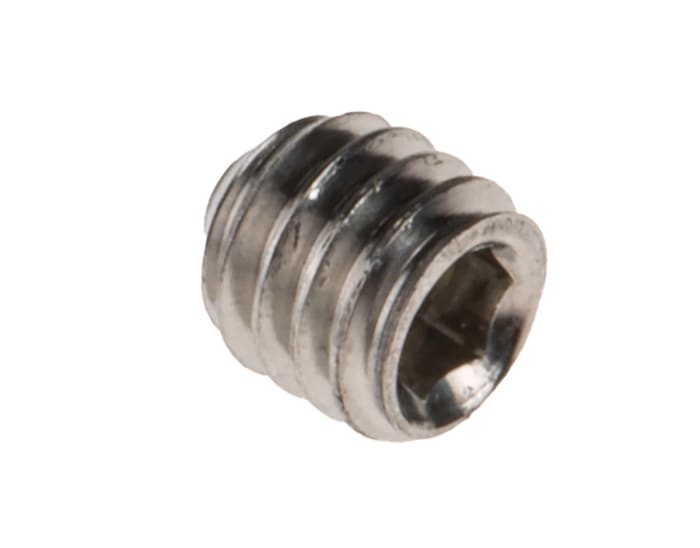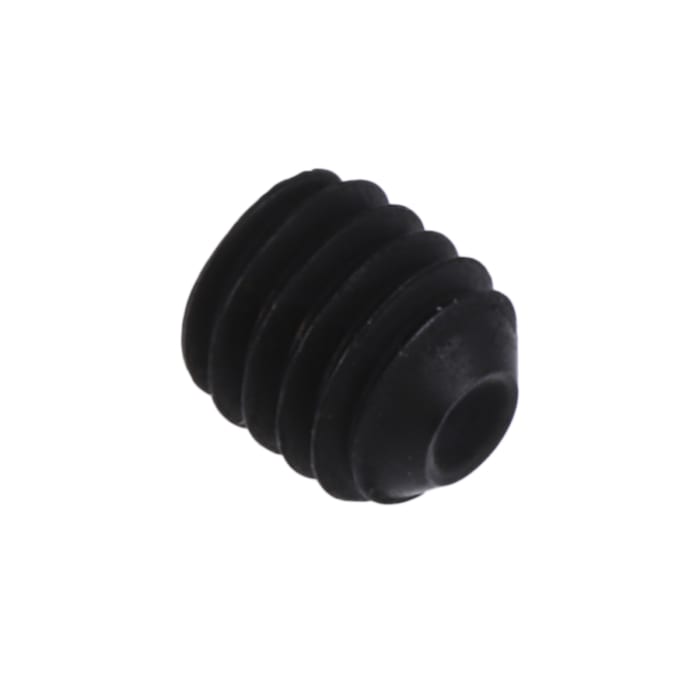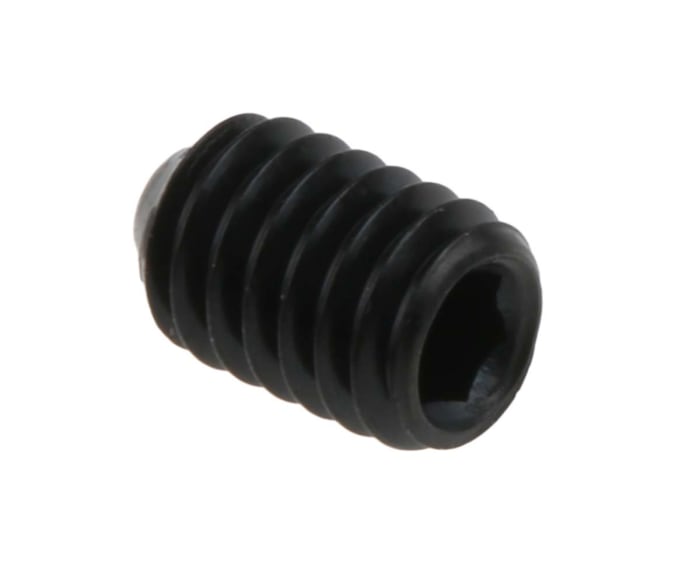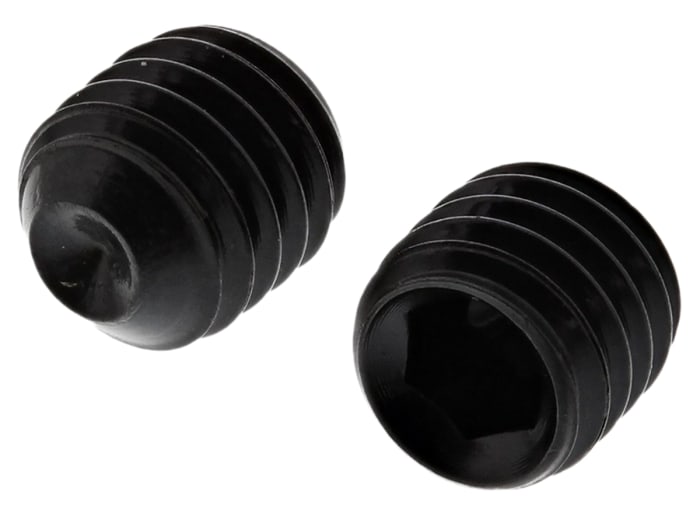Black, Self-Colour Steel Hex Socket Set M4 x 4mm Grub Screw

Techniniai dokumentai
Specifikacijos
Markė
RS ProIlgis
4mm
Thread Size
M4
Medžiaga
Steel
Finish
Black, Self-Colour
Screw Type
Grub Screw
Standards Met
DIN 916
Head Shape
Hex Socket Set
Drive Type
Hex
Produkto aprašymas
RS PRO Socket Screws – Steel Hexagon Black Grub Screw
RS PRO range of hexagon grub screws features excellent capabilities within machine repair and fixing applications. Grub screws have no head (also known as headless or blind) and it is simply a threaded fastener to secure an object within another. They are generally used in tight areas where you do not want the head sticking out, or a little bit countersunk from the top of the material so nothing can hit it and interfere with the operation of the application. You tighten or undo them, using an Allen key. They can have various tip point types which include:
Cup point – concave tip, most commonly used
Flat point – used for frequent resetting or relocating, simple and cost-effective
Cone point – pointed tip, designed for a more permanent installation, highest holding capability due to the precise contact of the cone point
Half Dog point – the tip is cylindrical
Sandėlio informacija laikinai nepasiekiama.
Patikrinkite dar kartą.
€ 13,40
€ 13,40 1 Box of 100 (be PVM)
€ 16,21
€ 16,21 1 Box of 100 (su PVM)
1

€ 13,40
€ 13,40 1 Box of 100 (be PVM)
€ 16,21
€ 16,21 1 Box of 100 (su PVM)
1

Pirkti dideliais kiekiais
| kiekis | Vieneto kaina |
|---|---|
| 1 - 4 | € 13,40 |
| 5 - 9 | € 12,64 |
| 10 - 29 | € 11,97 |
| 30+ | € 11,21 |
Techniniai dokumentai
Specifikacijos
Markė
RS ProIlgis
4mm
Thread Size
M4
Medžiaga
Steel
Finish
Black, Self-Colour
Screw Type
Grub Screw
Standards Met
DIN 916
Head Shape
Hex Socket Set
Drive Type
Hex
Produkto aprašymas
RS PRO Socket Screws – Steel Hexagon Black Grub Screw
RS PRO range of hexagon grub screws features excellent capabilities within machine repair and fixing applications. Grub screws have no head (also known as headless or blind) and it is simply a threaded fastener to secure an object within another. They are generally used in tight areas where you do not want the head sticking out, or a little bit countersunk from the top of the material so nothing can hit it and interfere with the operation of the application. You tighten or undo them, using an Allen key. They can have various tip point types which include:
Cup point – concave tip, most commonly used
Flat point – used for frequent resetting or relocating, simple and cost-effective
Cone point – pointed tip, designed for a more permanent installation, highest holding capability due to the precise contact of the cone point
Half Dog point – the tip is cylindrical



